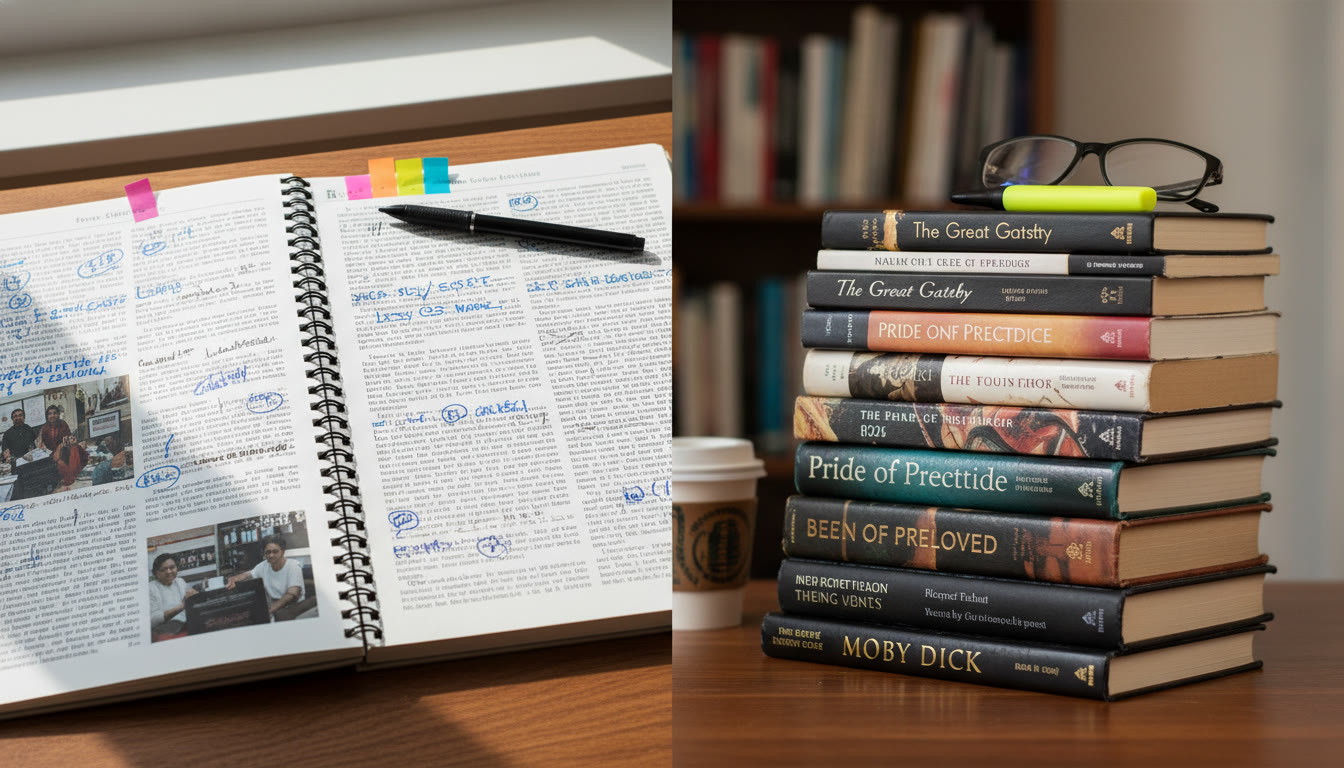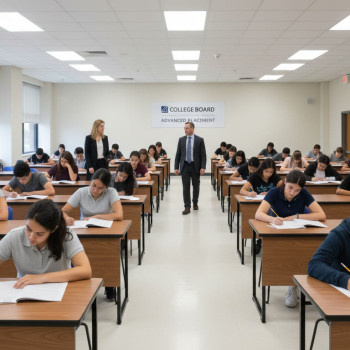Lang vs Lit: Which AP English Fits Your Strengths?
Picking between AP English Language and Composition (Lang) and AP English Literature and Composition (Lit) feels, for many students, like choosing the language of your academic future. Both courses sharpen key reading and writing muscles, but they flex different parts of the brain. If you love argument, analysis of rhetoric, and building real-world case-making skills, Lang might sing to you. If images, symbolism, tone, and deep dives into character and form thrill you, Lit could be your lane.

Why this decision matters (beyond a course name)
This choice affects how you read, how you write, and how you prepare for college-level work. AP scores can translate into college credit or place you into higher-level classes — but the true win is the skills you’ll carry forward. Lang trains you to analyze how language functions to persuade. Lit trains you to interpret and argue about the meaning of literary texts. Both strengthen critical thinking and communication, but they do so with distinct emphases.
Snapshot: What each course asks of you
Here’s a short, clear way to look at the core focus of each course.
| Feature | AP English Language | AP English Literature |
|---|---|---|
| Primary Texts | Nonfiction: essays, speeches, journalism, memoir, visual and quantitative sources | Fiction and poetry: novels, short stories, plays, poems |
| Primary Skill | Rhetorical analysis and argumentation | Literary analysis and interpretation |
| Typical Exam Tasks | Rhetorical analysis, argument essay, synthesis of sources | Poetry analysis, prose analysis, thematic/literary argument |
| Best For Students Who | Enjoy debating, crafting evidence-based arguments, and reading nonfiction | Enjoy reading literature closely, noticing imagery, voice, and form |
| Useful College Majors | Journalism, Political Science, Communications | English, Comparative Literature, Creative Writing |
How to tell which one fits your strengths
Answer the following questions honestly — your pattern of answers will point you toward Lang or Lit.
- Do you get excited by opinion pieces, podcasts, political speeches, and persuasive ads? (Lean Lang.)
- Do you find satisfaction in unraveling poems, symbols, and the choices an author makes across a novel? (Lean Lit.)
- Do you prefer making a clear claim and backing it with evidence from different sources, or exploring ambiguous meaning and multiple interpretations? (Argumentative = Lang; Interpretive = Lit.)
- Are timed, source-based essays and crafting rhetorical strategies a comfort, or do you prefer slow, layered close readings of language and form? (Fast synthesis = Lang; close-reading patience = Lit.)
Practical signals from your classroom and homework
Look at the types of assignments your teacher gives. If you’re often asked to analyze speeches, write persuasive pieces, or evaluate sources, Lang is already in practice. If homework centers on annotating novels, analyzing character arcs, or unpacking meter in poetry, Lit is the familiar path.
Exam format and what it means for studying
Both exams test reading and writing, but the formats demand different preparation strategies. Understanding test structure will help you target study time efficiently.
AP English Language — what to expect
The Lang exam emphasizes rhetorical skill. Expect to dissect texts quickly, identify rhetorical choices, and construct clear, evidence-based essays. You’ll practice three major free-response tasks: rhetorical analysis, argument, and synthesis (the latter asks you to integrate multiple sources into an argument). Multiple-choice passages are mostly nonfiction and test comprehension and rhetorical insight.
AP English Literature — what to expect
Lit demands precision in reading and interpretation. The free-response questions typically ask you to analyze a poem, analyze a prose passage, and write an argument about a novel or play you know well. Multiple-choice passages often include poetry and fiction, with questions focused on theme, tone, technique, and form.
Study strategies that fit each course
Not every study tip works the same across courses. Below are focused strategies that align with the unique demands of Lang and Lit.
Strategies for AP English Language
- Practice timed rhetorical analyses: Identify thesis, audience, purpose, and rhetorical devices under time pressure.
- Build a toolbox of rhetorical terms and examples: ethos, pathos, logos, anaphora, concession, tone shifts.
- Master source synthesis: practice choosing and integrating 3+ sources to back a clear claim while citing concisely.
- Write concise topic sentences and commentary — graders reward clarity and judgment, not verbosity.
- Read a steady diet of high-quality nonfiction (op-eds, longform journalism, essays) and annotate for strategy, not just content.
Strategies for AP English Literature
- Practice close readings of short poems and passages—focus on diction, imagery, meter, and figurative language.
- Create a personal ‘literary moves’ list: metaphor, enjambment, free indirect discourse, unreliable narrator; link moves to effects.
- Develop thesis statements that offer a defensible interpretation, not a summary.
- Practice timed essays that quote selectively and analyze, rather than summarize.
- Build a short reading list of novels and plays you can cite confidently for the open-question (if your exam still uses a chosen-work prompt, practice shaping arguments around those texts).
How to measure potential and prepare a plan
Choosing Lang or Lit isn’t a one-time decision — it’s a process of honest self-assessment and iterative practice. Below is a simple, practical plan you can use over six months of preparation.
| Month | Language-Focused Plan | Literature-Focused Plan |
|---|---|---|
| 1 | Collect and annotate nonfiction pieces; learn rhetorical terms; take a baseline practice test. | Read and annotate short poems and two short fiction passages; learn literary terms; baseline practice test. |
| 2 | Drill rhetorical analysis essays timed (30–40 mins); build synthesis essay outlines. | Drill poetry and prose timed essays; practice forming tight argumentative theses about texts. |
| 3 | Practice multiple-choice passages; refine evidence integration and commentary. | Practice multiple-choice on poetry and fiction; refine quoting and line-level analysis. |
| 4 | Take a full practice exam; analyze mistakes; focus on pacing and clarity. | Take a full practice exam; analyze mistakes; practice deeper textual support. |
| 5 | Target weak rhetorical moves; expand nonfiction reading breadth (science, politics, speeches). | Target weaknesses in meter, imagery, or novel analysis; read a longer novel or play thoroughly. |
| 6 | Final timed practices, simulate test day, refine introductions and conclusions. | Final timed practices, polish quotations and paragraph-level analysis, simulate test day. |
Common myths and how to avoid them
There’s a lot of noise about these courses. Let’s clear up the most persistent myths so you can make a calm, informed choice.
Myth 1: “Lit is harder than Lang”
Difficulty is personal. Some find the ambiguity of literature harder; others struggle with the discipline of synthesizing multiple sources. Choose based on what feels sustainable and enjoyable for you.
Myth 2: “Lang is just debate prep, not real literature”
Lang is serious textual study. It teaches how language produces effect and meaning in real-world contexts — a skill valuable in many college majors and careers.
Myth 3: “Taking both looks better on college apps”
Colleges care more about depth and grades than the all-encompassing breadth of courses. If you can manage both without sacrificing performance, go for it — but it’s better to excel in one than to flounder in two.
Sample in-class and homework activities that reveal fit
Try these short at-home activities. The one that energizes you most likely points to the better match.
- Lang exercise: Read a recent opinion piece. In 15 minutes, annotate the writer’s claim, audience, three rhetorical strategies, and write a 250-word counterargument that uses two sources.
- Lit exercise: Read a one-page poem. In 20 minutes, annotate images, tone shifts, and write a 300-word interpretation that links two lines to a central thesis.
How Sparkl’s personalized tutoring can fit into your decision and prep
Deciding between Lang and Lit is sometimes easier with feedback from someone who knows exam expectations inside out. If you’re considering extra help, Sparkl’s personalized tutoring offers 1-on-1 guidance, tailored study plans, and expert tutors who can diagnose your reading and writing strengths. Tutors can provide targeted practice (timed essays, passage analysis, or synthesis drills), and Sparkl’s AI-driven insights can track your improvement to refine your study plan. That kind of precision can help you confirm your choice or pivot mid-year with confidence.
What teachers and colleges look for
High school teachers want to see steady skill growth and intellectual curiosity. Colleges look for rigor, but they also want students who succeed in challenging courses. A high grade in the course you choose — plus strong AP exam results and well-crafted writing samples — is more persuasive than taking both courses and earning mediocre marks.
Grading rubrics and how to game them ethically
Understanding how graders read your essays will change how you write them. Both AP rubrics prize clarity, coherent development, and textual evidence. For Lang, make rhetorical choices explicit and tie devices to purpose. For Lit, ground your claims in close reading and explain how images and structure create meaning. Above all: answer the prompt precisely.
Quick checklist for AP essays
- Respond directly to the prompt in your thesis.
- Use the text—quote selectively and analyze, don’t summarize.
- Organize paragraphs with clear topic sentences and transitions.
- Wrap up with a conclusion that extends rather than repeats.
- Stay within the time limit with a short plan before you write.
Real-world benefits of each course
These aren’t just test-prep classes — they train habits that matter in college and careers.
- AP Lang builds persuasive communication: useful for law, public policy, business, journalism.
- AP Lit builds interpretive and close-reading skills: valuable for literature, humanities research, creative writing, and any field that prizes nuanced textual analysis.
- Both strengthen writing clarity, critical thinking, and the ability to marshal evidence—skills that translate across majors.
When you’re still undecided: hybrid approaches
If you’re genuinely torn, here are low-risk ways to explore both without overcommitting.
- Take one AP in-school and the other as an independent study or summer course.
- Choose the one your teacher recommends based on your in-class performance and writing samples.
- Start with the course that aligns with your next college major; switch later if you discover a stronger preference.
Sample weekly study schedule (for busy students)
Balance consistency with realistic time. The following 7-hour weekly plan gives structure without overwhelming you.
| Day | Lang-Focused (Weekly 7 Hours) | Lit-Focused (Weekly 7 Hours) |
|---|---|---|
| Mon | 45 min: Read nonfiction piece + annotate | 45 min: Read poem + annotate |
| Tue | 60 min: Timed rhetorical analysis practice | 60 min: Timed prose passage analysis |
| Wed | 30 min: Rhetorical terms flashcards | 30 min: Literary devices flashcards |
| Thu | 60 min: Synthesis outline practice | 60 min: Novel reading + theme notes |
| Fri | 30 min: Multiple-choice practice | 30 min: Multiple-choice practice |
| Sat | 90 min: Full timed essay | 90 min: Full timed essay |
| Sun | 45 min: Review errors + plan for next week | 45 min: Review errors + plan for next week |
Final checklist to decide today
Before you enroll or commit, run through this quick checklist. If most answers point the same way, trust them.
- Which reading assignments excite you more — contemporary essays or poetry and novels?
- Do timed, persuasive writing tasks energize you?
- Do you prefer interpreting ambiguous meaning over making a clear argumentative claim?
- Can you imagine doing the daily work the course requires for a full year?
- Does your planned college major or career align with the skills emphasized by one course?
Parting advice — choose the course that grows you
At the end of the day, both AP English Language and AP English Literature are rigorous, rewarding courses that train you to read and write at a higher level. The better pick is the one you’ll commit to dressing up for every day: the one whose assignments you will enjoy enough to do well. If you want a data-driven nudge, personalized tutoring—like Sparkl’s tailored 1-on-1 tutoring and AI-driven insights—can evaluate your essays, point out patterns, and help you accelerate improvement. Whatever you choose, put effort into deliberate practice: regular timed essays, honest feedback, and consistent reading will be the real difference-maker.

Quick next steps
1) Do the short Lang and Lit exercises above and track which one energized you more. 2) Talk with your English teacher about your strengths and which course aligns with your school’s expectations. 3) If you want targeted feedback, consider a few personalized tutoring sessions to diagnose strengths and shape a study plan. Small, strategic steps now will make your AP year manageable and enjoyable — and get you the score you want.
Good luck — trust your instincts, practice deliberately, and let the texts teach you how to think. Whether you choose Lang or Lit, you’re choosing to sharpen tools that will serve you for life.
















No Comments
Leave a comment Cancel